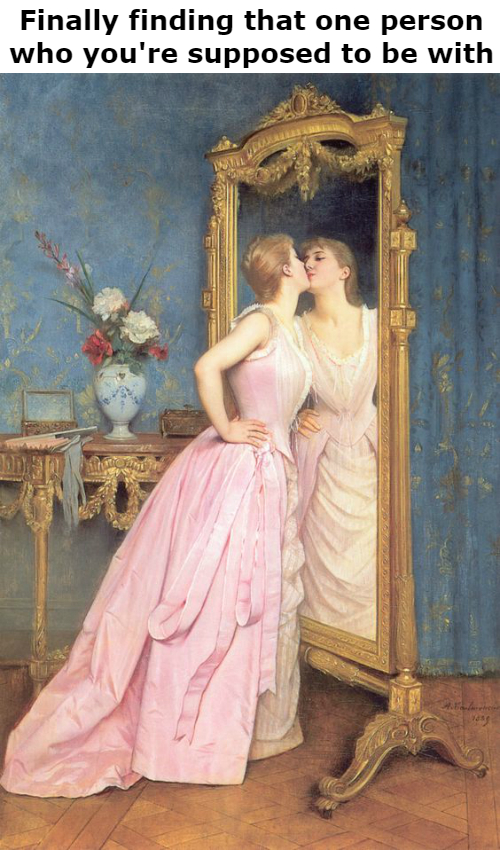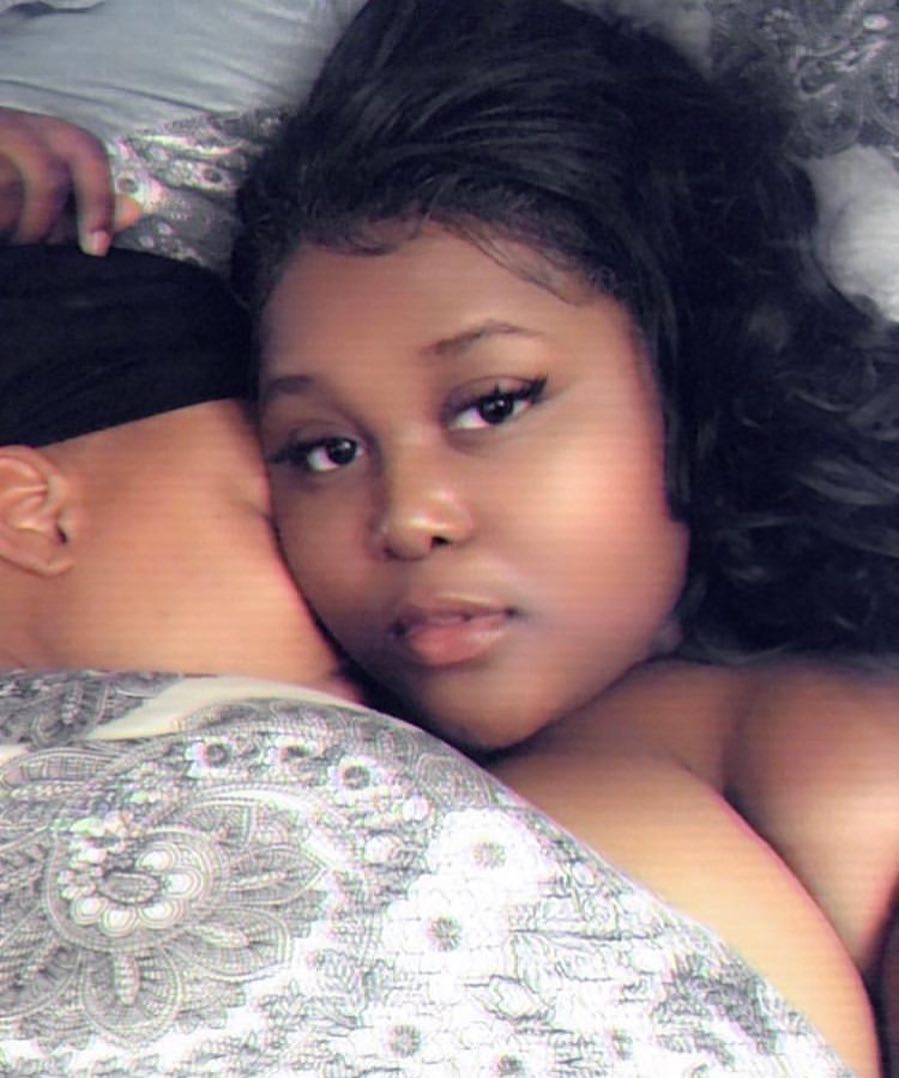We’ve all been here before: You meet someone. You immediately feel seen, exposed, and vulnerable in ways that you’ve never been before. You question everything you thought you knew about love. You make space for each other’s emotional traumas. You meet each other’s blood and/or chosen families. You book a Caribbean vacation, have incredible sex, and profess your love for each other under the moonlight.
You make the big leap to move in together and even though your partner has a beautifully renovated pre-war apartment with south-facing windows, you decide to sign a brand new lease together for the sake of fresh starts and equal partnership. And one day, when y’all are doing your joint laundry, commiserating about your cycles (which are now synced, by the way), you look at your beloved and think, “Damn, this has been the best four months of my life.”
Thanks to religion, colonization, sexism, systemic racism, and homophobia (honestly, the list could go on), queer couples — especially black + brown queer couples — historically make it their business to secure safe spaces to express themselves and their glorious love for each other. While its history is rooted in solving seemingly basic logistical issues, U-Hauling is a mainstay in queer relationships.
Whether or not your relationship is doomed, I’m rooting for you, sis. I’m only here to wax optimistic, illuminate some truths you’ve been hiding from, and ask all the hard questions. So based largely on my personal experiences and the stories my femme friends are kind enough to share with me, here is a list of four reasons that brown femmes U-Haul:
1. Radical acceptance is intoxicating.

In a world where our otherness isolates us and capitalism prevents us from being in touch with our own bodies, radical acceptance is a bottle of Gatorade in the desert: desperately welcomed and invigorating. If you’re lucky enough to have found people who accept you for exactly who you are, but remain pliable enough to accept who you’re going to be, you never want to let go. Your partner’s presence becomes addicting and the “urge to merge” completely takes over.
While it’s totally fine to seek support, the task of defining yourself is completely your own. When you depend on your partner(s) to give you approval and acceptance, you give them too much power and deprive yourself of agency. Take a page from God herself, Audre Lorde, who said, “If I didn’t define myself for myself, I would be crunched into other people’s fantasies for me and eaten alive.”
2. It’s easier to be vulnerable with someone who lives in the same intersections.

Before I came out, I spent a lot of time dating cishet dudes but always made it a point to only date men of color because… honestly, who has time to teach a white boy how to act? But alas, most cishet men are trained not to empathize with marginalized folx, no matter how strong their intentions are for allyship, and femmes are usually required to exert a lot of time and energy simply explaining our experiences to them. And chances are, our explanations are met with mansplanations, invalidating so many of the feelings we’ve worked up the courage to even articulate to this human trash bag.
The work we do to explain ourselves to our partners, rather than simply sharing our experiences with them, lessens as we date people who live within the same margins. Think about it this way: If you and your partner don’t speak the same first language — mine is Tagalog, which is extremely complicated and the accent is really tricky, y’all — imagine the amount of work needed to simply translate your thoughts and feelings to one another.
Not having to do this work quite literally saves time, which is why these relationships move at the speed of light. Finding someone who speaks that same language feels like finding a diamond in a pile of horse shit. It’s a level of comfort that makes vulnerability possible in a short amount of time.
Here are some things to consider: Is it fair for your partner to carry the weight of reconciling the trauma you’ve experienced from heterosexual relationships? Is it fair for your partner to be your only lighthouse in the salty sea of heteronormativity? Are you solely depending on them to unpack intergenerational trauma, displacement, and internalized racism? The line between support and toxic codependency is so easy to cross and it’s important to keep each other in check.
3. The sex is ON POINT.
Because you’ve found someone that speaks the same language and you’re able to be vulnerable in new ways, things in the bedroom are un-fucking-believable. Beyond the chemistry that your beautiful bodies have goin’ on, there’s mutual respect and trust already established. All the emotions that have been bubbling around your Caribbean vacation, your new apartment, and the meeting of families come to a wonderful peak. And it’s incredible, transformative even — all the shit people write sonnets about times a thousand.
This sex haze can blind you completely from the things that aren’t working for you. Maybe that head game is so good that you’re completely ignoring the fact that your communication styles are totally different. Or maybe topping is so fucking empowering that caressing your ego outside the bedroom becomes taxing and high maintenance for your partner(s).
I’m an advocate for daily orgasms because they help keep your skin clear and your mood elevated, but you gotta come up for air (or at least play solo every once in a while) if you want to see things clearly within your relationship, sis.
4. You fell in love with them because you see yourself in them.

When someone starts giving me clitty tingles on a date based on vibe alone, I try to ask myself, “Do I want to be with them, be on them, or be them?” Whether you answer yes to all three, there’s no right or wrong answer to how you move forward. In essence, you start falling for someone when you see a little bit of yourself in them. Even if it’s not your present self, maybe they offer you the courage to step into who you want to be.
For many queer folx of color — especially those without a chosen family — falling in love with that partner(s) is one of our first experiences of accurate visibility. No shade, no tea toward Kit Porter from The L Word, but media representation of Black + Brown Femmes is scarce, and when present, inaccurate. In our communities, especially immigrant communities, femmes are forced to, quite frankly, play straight to appease those titas and titos who might talk shit.
Depending on your partner’s presence to bridge a major gap in building your identity can strain the relationship significantly. Things can get one-sided quick, especially between someone who is only recently coming out and someone who has championed the gay cause for a longer time. Continuous communication and introspection are so important to making sure that each person in the relationship is getting an equal amount of love.
With that being said, if being with this partner(s) allows you to fall more in love with yourself, I am yaaaas-queening from the sidelines. The epitome of queer love is being given the space to fall mutually and equally in love with the skin you’re each in and I couldn’t be more proud of you for getting to this spot!
So the next time you feel that no one else can relate to why you keep bouncing from one heavy relationship to the next, come back to this spot. You’re definitely not alone. Sometimes we just need some reminders on how to hold onto ourselves even in the midst of all-consuming, live-in love affairs.
Additionally, here is a list of resources for LGBTQ+ relationship counseling if you and your partner(s) are seeking more support:
National Queer & Trans Therapists of Color Network
Kink, Poly, Trans & LGBQ Affirmative Providers – Manhattan Alternative
Queer Mental Health Initiative Resource List
Rest for Resistance by QTPoC Mental Health
#RevealToHeal: Choosing a Therapist as an LGBTQ Person of Color
-B
Bio: Beatriz Kaye is the gay brown Carrie Bradshaw the world needs. She is a queer Filipino-American writer, poet, designer and community organizer living in Bedford-Stuyvesant, Brooklyn. She leads Bed Stuy Book Club, a community organization that creates safe spaces for womxn and femmes of color to gather and educate each other through literature. She writes about weed, pop culture, gentrification and community at 2GIRLS1COVEN, a blog for smart stoner girls.


